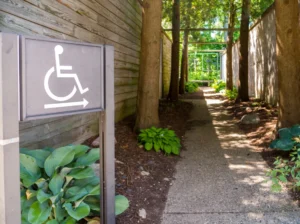
How to Choose a Poured Rubber Flooring Contractor
Getting poured rubber flooring installed isn’t something you decide on a whim. It could be for a park, a gym, or a walking path. No matter the setting, you want it done right. This isn’t a job where you can cut corners — you need someone who knows what they’re doing.
But how do you find that person? What separates a solid professional from someone just winging it?
Let’s walk through the key things to look for before hiring — and a few warning signs that should make you think twice. If you’re aiming to get expert flooring guidance, it helps to start with the basics of what matters most.
Why This Choice Really Counts
Poured rubber might seem simple on the surface, but the process behind it is anything but. It can survive for years if it is put in correctly. It can tolerate foot traffic, bad weather, and everyday use. But a bad install? That can lead to cracks, puddles, or worse — a complete redo.
The materials are only half the story. How they’re mixed, spread, and cured makes a big difference. That’s where the contractor comes in. Someone with real experience can spot issues before they happen, and solve them without fuss.
Don’t Skip the Experience Check
Not all experience is equal. You want someone who’s handled projects like yours — not just once, but often. Ask questions like:
- How long have you been doing poured rubber installations?
- What kind of surfaces do you specialize in?
- Can I see photos or visit one of your previous jobs?
Seeing their work tells you a lot. Is the surface even? Are the colors consistent? Does it look solid a year later?
A good contractor will be proud to show off their work. If they hesitate or only have a few polished photos, take note.
What Do Other People Say?
Word of mouth still matters. Online reviews are useful, but don’t just skim the stars. Read what people say. Look for patterns. Do a lot of reviews talk about delays or bad communication? Or do people praise their reliability and clean results?
It’s not the end of the world if you get one poor review. But if the same issues pop up again and again, that’s a red flag.
Also, check more than one platform. Sometimes, smaller review sites or neighborhood groups offer more honest feedback than company-controlled testimonials.
Materials Matter (A Lot)
A strong binder and EPDM granules are often used to manufacture good rubber flooring. But not all products are created equal. Some fade in the sun. Others don’t hold up well to temperature changes.
Ask your contractor:
- Where do your materials come from?
- Are they UV-resistant?
- What’s the expected lifespan?
- What is the ratio of rubber to binder that you use?
You don’t have to be an expert — you just need someone willing to explain clearly and honestly.
Walk Through the Process Together
You should never be left guessing how the work will unfold. Ask them to break it down:
- What kind of prep is needed?
- How long will it take?
- What happens if it rains or the temperature drops mid-project?
- How soon can the surface be used?
If a contractor can’t give straight answers — or dodges the question — that’s a concern. You’re hiring them for their knowledge, not just their labor.
Always Ask About the Warranty
Even a great install can run into issues. A reputable contractor will stand behind their job. Ask what their warranty covers. Is it just the materials, or does it include labor too?
You’ll also want to know how long the coverage lasts and what could void it. Some warranties depend on regular maintenance, like sealing or cleaning, so it’s good to know that upfront.
Get a Quote — and Read It Carefully
A quote should be more than a ballpark number. It needs to list what’s included: labor, materials, prep work, cleanup, and any extras.
Also, check:
- Payment schedule
- What’s not included (sometimes drainage work or leveling costs more)
- When the job can start and finish
Don’t hire contractors who want full payment up front. A deposit is standard, but everything else should come with progress.
Ask About Maintenance, Too
Once the job’s done, what then?
Rubber surfaces don’t need a ton of care, but they’re not set-it-and-forget-it either. You might need to clean, reseal, or touch up every now and then.
A responsible contractor won’t vanish after the final invoice. They’ll give you tips for keeping the surface in shape and let you know when to call them back if needed.
Watch Out for Red Flags
Actions speak louder than words, even if someone speaks a nice game. Be cautious if:
- They can’t provide references
- They pressure you to decide immediately
- There’s no written contract
- They dodge questions about licensing or insurance
Trust your instincts.
Final Thought
The right poured rubber flooring contractor won’t just install a surface — they’ll help you avoid headaches down the road. From planning to prep, pouring to curing, their job is to get it done right the first time.
Take the time to ask questions. Look at their past work. Compare quotes carefully. And don’t rush the decision.
Once it’s done well, you’ll have a surface that’s not just practical — but something you’ll be glad to walk on every single day. For more inspiration on how rubber can transform public spaces, check out https://safestep.pro/rubber-sidewalks/.













 Accessibility
Accessibility